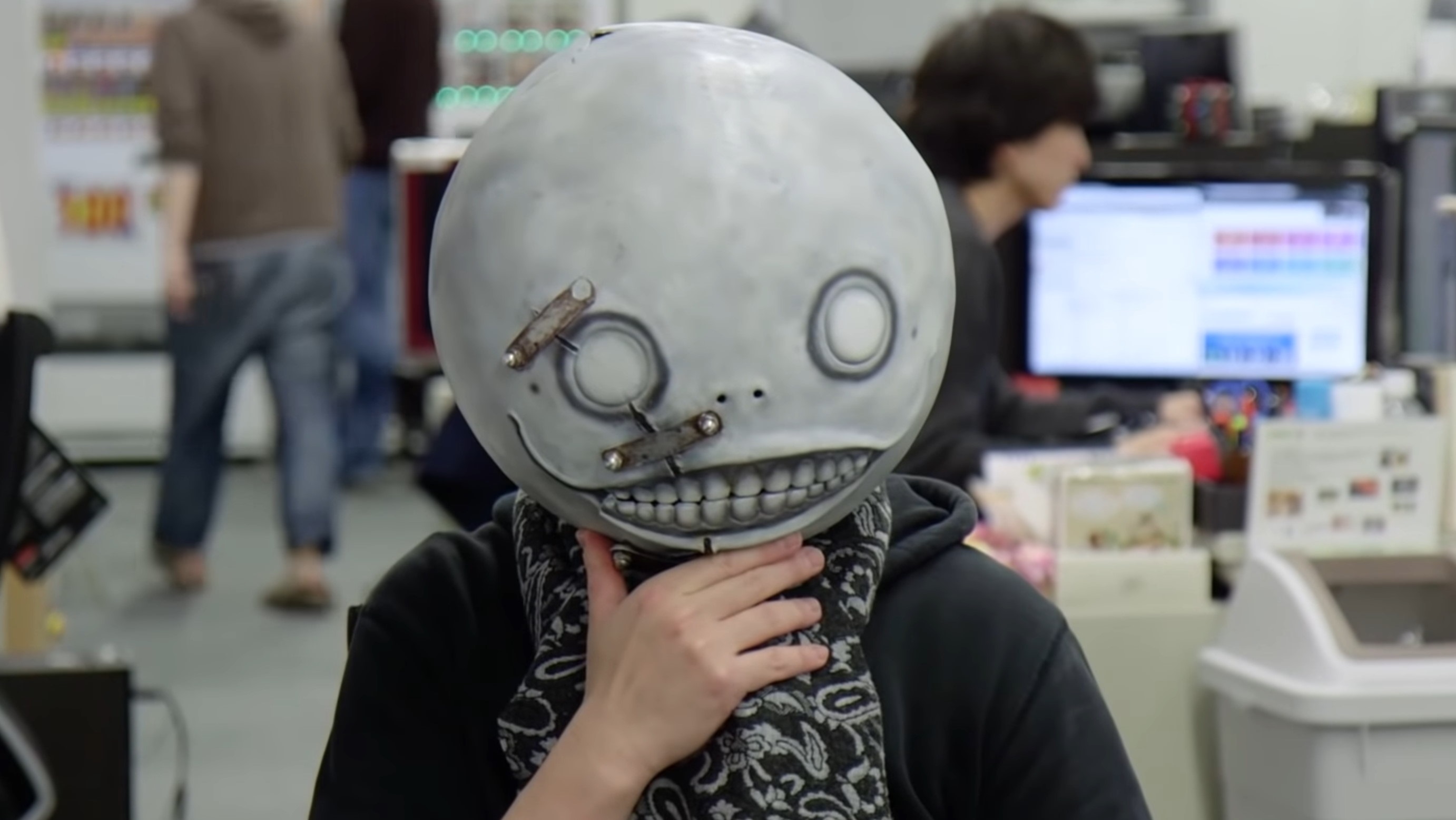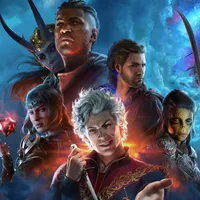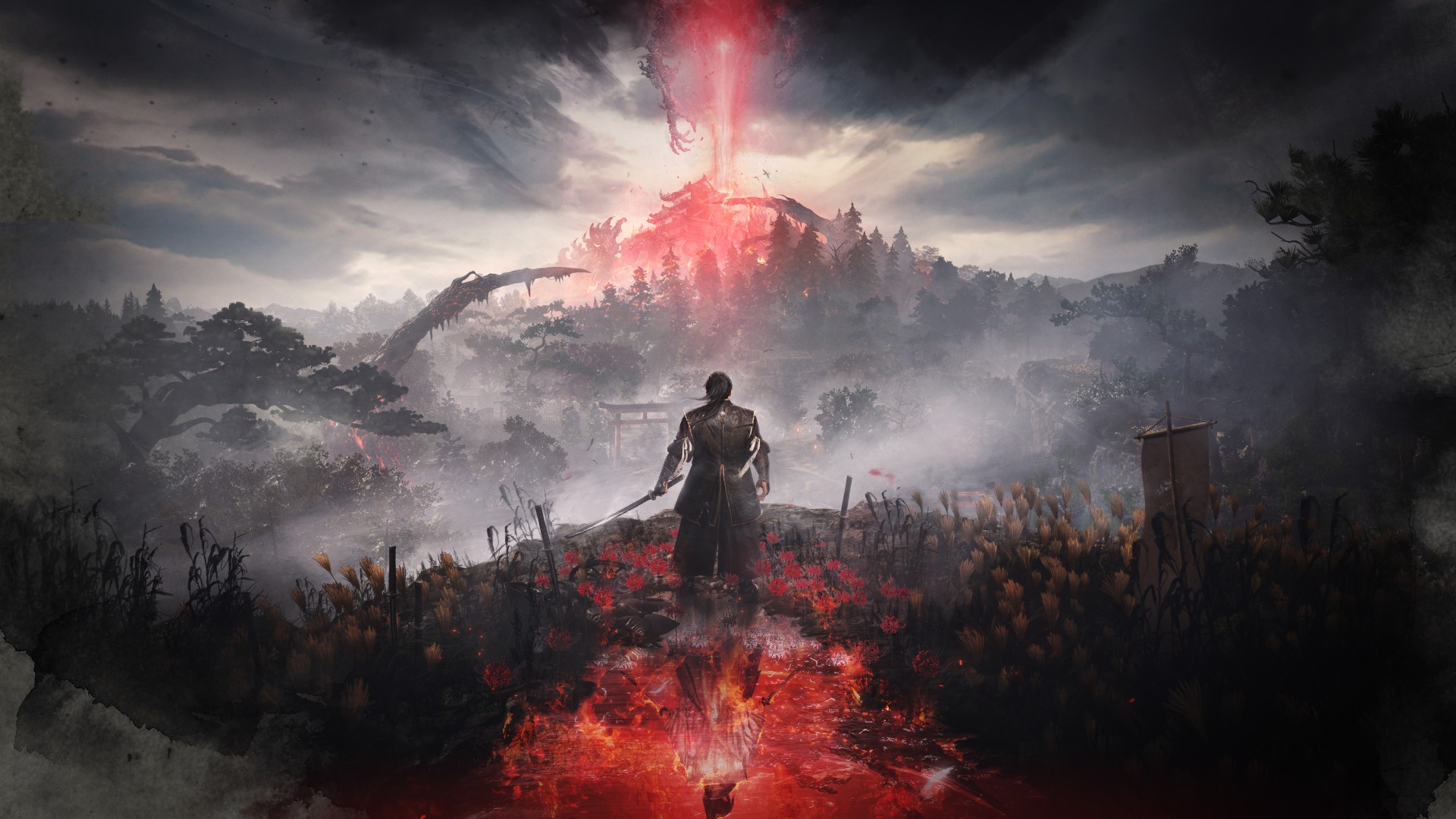Yoko Taro wanted Nier: Automata to be 'a story I'd have trouble grasping myself,' so job done, then goes on amazing extended digression about cubes and 'aspiring to perfect' them
"I would say that building a story is like making a cube out of clay."

Keep up to date with the most important stories and the best deals, as picked by the PC Gamer team.
You are now subscribed
Your newsletter sign-up was successful
Want to add more newsletters?

Every Friday
GamesRadar+
Your weekly update on everything you could ever want to know about the games you already love, games we know you're going to love in the near future, and tales from the communities that surround them.

Every Thursday
GTA 6 O'clock
Our special GTA 6 newsletter, with breaking news, insider info, and rumor analysis from the award-winning GTA 6 O'clock experts.

Every Friday
Knowledge
From the creators of Edge: A weekly videogame industry newsletter with analysis from expert writers, guidance from professionals, and insight into what's on the horizon.

Every Thursday
The Setup
Hardware nerds unite, sign up to our free tech newsletter for a weekly digest of the hottest new tech, the latest gadgets on the test bench, and much more.

Every Wednesday
Switch 2 Spotlight
Sign up to our new Switch 2 newsletter, where we bring you the latest talking points on Nintendo's new console each week, bring you up to date on the news, and recommend what games to play.

Every Saturday
The Watchlist
Subscribe for a weekly digest of the movie and TV news that matters, direct to your inbox. From first-look trailers, interviews, reviews and explainers, we've got you covered.

Once a month
SFX
Get sneak previews, exclusive competitions and details of special events each month!
Nier: Automata is one of those games you have to experience for yourself. If you haven't then beware spoilers, but the game is set up with dead ends, false finishes, constant narrative table-flips, and a grand total of 26 endings. I remember ploughing through it breathlessly with only the vaguest idea of what was going on, then looking at the wiki afterwards to find out what the hell just happened. So when director Yoko Taro says he wanted to create something that even he couldn't quite grasp, I kinda see where he's coming from.
Speaking to Archipel in a new video about his writing process, in which Taro wears his trademark "Emil" mask (a character from Nier), the creator says he had no idea where to start with Automata, other than knowing he wanted a new "starting point each time" and "something different to write" for projects.
"Drakengard depicts a dark and violent story, whereas Nier Replicant is themed around sorrow," says Taro. "At the time, there wasn't really something set in stone that I wanted to do. I had already built a story that raises emotion with Replicant. This time around, I attempted to create something more confusing with Automata."
Taro says the starting point for Automata was a character designed so players couldn't possibly relate to her. "At the very beginning, the story's frame started with Simone's character," says Taro. "It's this big female robot that sings on stage. In Replicant, you always fight enemies understanding the reason why you do so. This time around, it's impossible to feel empathy. She devotes herself to a man as she dresses with corpses. I added this trait that players can't relate to.
"Automata's story progresses while holding some of these situations that are difficult to understand. I aimed for a story I'd have trouble grasping myself."
Mission accomplished, I'd say. Taro then gets a little more philosophical and embarks on a great extended metaphor about game design and making cubes.
"Looking back [on Automata], I don't really have any regrets," says Taro. "I'd actually say that I've never felt like I carried out anything completely. It feels more like a task. I would say that building a story is like making a cube out of clay. You make it, but every time you look at it, you find a side that's crooked.
Keep up to date with the most important stories and the best deals, as picked by the PC Gamer team.
"Then you manipulate it again, just to realise that it's crooked somewhere else. That feeling keeps going on forever. As you keep adjusting it, the deadline finally hits and you need to stop.
"At that moment, you start feeling that it somehow turned out all right. But shortly after, you see some crooked parts once again."
Taro's point is a great one. I've been a writer for a long time now, and there are certain pieces you work and work at but are never quite happy with: then it's deadline, and it has to go. And years later you can stumble across these half-remembered pieces, and it's like seeing them anew.
"Three years later, you'd look again and feel it looks like a nice cube again," says Taro. "Your feeling towards it keeps evolving. I never had that feeling of having made the perfect cube or the perfect scenario. After some time though, I could feel like I made the necessary efforts.
"So in the end I don't feel regret towards something I should perhaps have done. If I had infinite time and resources, I'd keep working on that cube forever. There's a need to put a stop at some point. Then the time just comes. You don't get to be fully satisfied, but it ultimately comes to an end. There's a bit of sadness when you can't work on it anymore. However, I never feel the need to take over things I left out into something else. I always start again from scratch, aspiring to perfect that cube."
2025 games: This year's upcoming releases
Best PC games: Our all-time favorites
Free PC games: Freebie fest
Best FPS games: Finest gunplay
Best RPGs: Grand adventures
Best co-op games: Better together

Rich is a games journalist with 15 years' experience, beginning his career on Edge magazine before working for a wide range of outlets, including Ars Technica, Eurogamer, GamesRadar+, Gamespot, the Guardian, IGN, the New Statesman, Polygon, and Vice. He was the editor of Kotaku UK, the UK arm of Kotaku, for three years before joining PC Gamer. He is the author of a Brief History of Video Games, a full history of the medium, which the Midwest Book Review described as "[a] must-read for serious minded game historians and curious video game connoisseurs alike."
You must confirm your public display name before commenting
Please logout and then login again, you will then be prompted to enter your display name.



